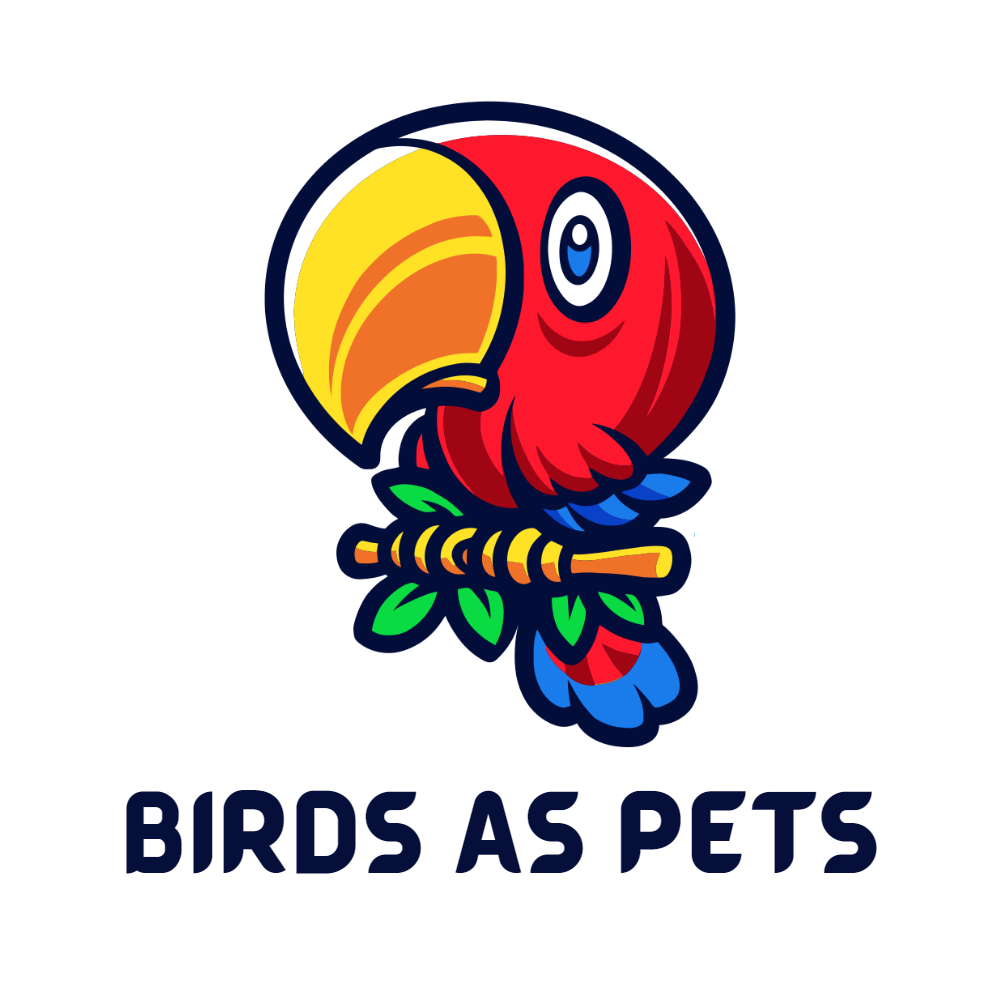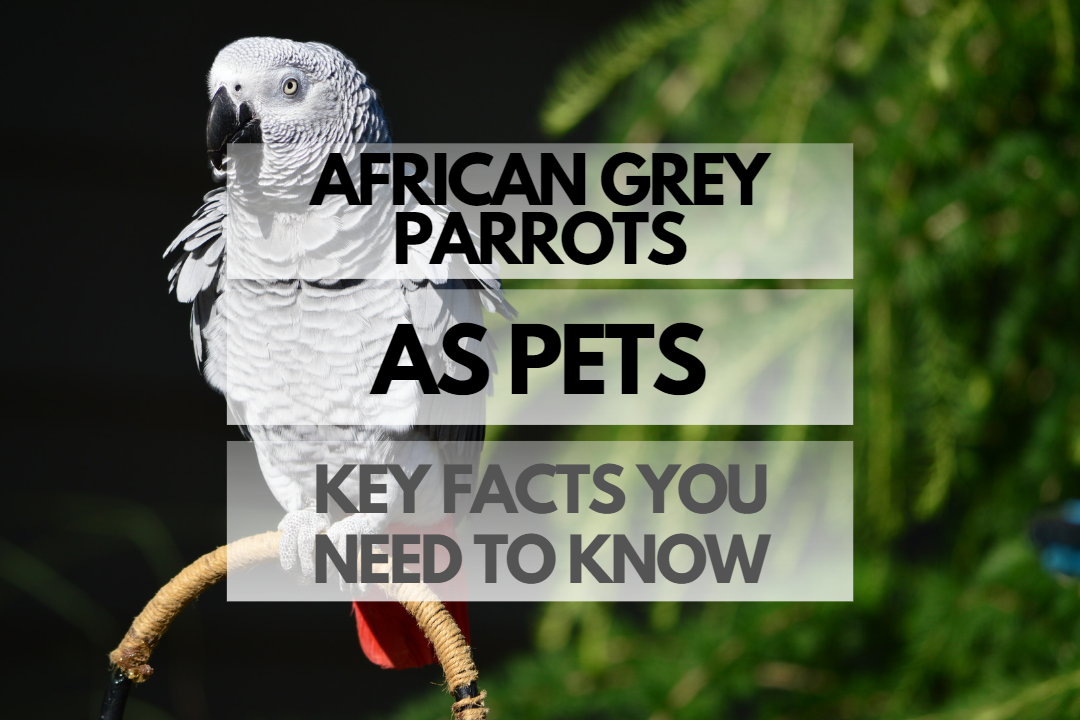African Grey Parrots are highly intelligent and captivating birds, making them popular pets for those willing to invest the time and effort required to care for them. In this article, we will explore various aspects of keeping African Greys as pets, including their natural habitat, lifespan, pros and cons, and everything you need to know about their care and maintenance.
Quick Reference Table: African Grey Parrot Facts
| Fact | Detail |
|---|---|
| Scientific Name | Psittacus erithacus |
| Size | 12 – 14 inches (30 – 36 cm) |
| Weight | 400 – 650 grams |
| Life Expectancy | 40 – 60 years |
| Origin | Central and West Africa |
| Color | Grey body, red tail |
Where Do Wild African Grey Parrots Live?
Wild African Grey Parrots are native to the rainforests of Central and West Africa, particularly in countries like the Democratic Republic of Congo, Ivory Coast, Ghana, and Cameroon. They prefer to inhabit dense forests, savannas, and mangroves and are highly social, living in large flocks.
African Grey Parrot Lifespan: How Long Do They Live as Pets?
African Grey Parrots have a long lifespan, typically living between 40 and 60 years in captivity. This long life expectancy means that owning an African Grey requires a significant time commitment and planning for their long-term care. It is not uncommon for African Greys to outlive their owners, so it’s important tomake arrangements for their care in case of unforeseen circumstances.
Are African Grey Parrots Good Pets?
African Grey Parrots can make wonderful and engaging pets for the right person. They are known for their high intelligence, strong bond with their owners, and remarkable ability to mimic human speech. However, they do require a lot of attention, mental stimulation, and social interaction to thrive, making them more suited for experienced bird owners who can dedicate the time and resources necessary for their care.
Are African Grey Parrots as Pets Good for Beginners?
Due to their complex needs and long lifespan, African Grey Parrots may not be the best choice for beginners. These birds require a great deal of attention, commitment, and experience to ensure their well-being. Novice bird owners may want to start with a smaller and less demanding species before considering an African Grey.
Are African Grey Parrots Easy to Care For?
While no pet is truly “easy” to care for, African Grey Parrots do present some unique challenges due to their intelligence, social nature, and long lifespan. They require regular social interaction, mental stimulation, a varied diet, and a spacious living environment to thrive. Potential owners should be prepared to invest the time, energy, and resources necessary to meet these needs.
African Grey Parrots Pros and Cons
| Pros | Cons |
|---|---|
| Highly intelligent | Require a lot of mental stimulation |
| Excellent mimics of human speech | Can be loud, especially when bored or stressed |
| Strong bond with their owner | Require significant time commitment |
| Long lifespan | Expensive to care for and maintain |
African Grey Parrot Price and Costs
The initial cost of purchasing an African Grey Parrot can range from $1,000 to $3,500, depending on factors such as age, health, and source. In addition to the purchase price, there are initial setup costs for a suitable cage, toys, and accessories. Ongoing expenses include a varied diet, veterinary care, and potential boarding costs during vacations or emergencies.
Where to Buy African Grey Parrots
African Grey Parrots can be purchased from reputable breeders, pet stores, or adoption/rescue organizations. It is essential to research the source thoroughly to ensure the bird has been raised in a healthy, ethical environment and is free from any health issues or behavioral problems.
Caring for African Grey Parrots
African Grey Parrot Food
A balanced diet for African Grey Parrots should include high-quality pellets, fresh fruits and vegetables, and occasional seeds and nuts. A varied diet is essential to provide all the necessary nutrients for their overall health and well-being. It is also crucial to avoid feeding them harmful foods such as chocolate, avocado, or foods high in salt or sugar.
Health and Common Issues
Common health issues in African Grey Parrots include feather plucking, respiratory infections, and calcium deficiencies. Regular veterinary check-ups and a balanced diet can help prevent many health problems, but it’s essential to monitor your bird closely for any signs of illness.
Signs of Healthy African Grey Parrots
| Healthy | Sick |
|---|---|
| Bright, clear eyes | Discharge or cloudiness in eyes |
| Smooth, well-groomed feathers | Ruffled, plucked, or discolored feathers |
| Active and alert | Lethargic or unresponsive |
| Normal droppings | Changes in droppings (color, consistency, frequency) |
| Good appetite | Loss of appetite or weight loss |
African Grey Parrot Pet Insurance
Investing in pet insurance for your African Grey Parrot can be a wise decision to help cover the costs of unexpected veterinary expenses. Many insurance providers offer specialized plans for exotic pets, including birds. These plans can cover accidents, illnesses, and routine check-ups, providing peace of mind and financial support for your parrot’s healthcare needs.
Personality and Behavior
African Grey Parrots are known for their intelligence, curiosity, and strong bond with their owner. They can be affectionate and gentle but may also be shy or reserved around new people or situations. These birds thrive on mental stimulation and social interaction, so providing a variety of toys, puzzles, and quality time with their owner is essential for their well-being.
Are African Grey Parrots Social?
Yes, African Grey Parrots are highly social creatures, both in the wild and in captivity. In the wild, they live in large flocks, maintaining close relationships with other birds. As pets, they form a strong bond with their owner and require regular social interaction to remain happy and healthy. However, they can be shy and cautious around strangers or new situations, so proper socialization is crucial.
Speech and Noise of African Grey Parrots
African Grey Parrots are famous for their remarkable ability to mimic human speech and other sounds. They can learn a vast repertoire of words and phrases, often using them in context. However, they can also be quite noisy, especially when bored or seeking attention. Regular mental stimulation and interaction can help reduce excessive noise levels and encourage your parrot’s impressive vocal abilities.
Similar Species to African Grey Parrots
Some similar species to African Grey Parrots include the Timneh African Grey (Psittacus timneh), which is slightly smaller and has a darker grey coloration, and the Amazon Parrot species, which are also known for their intelligence and talking abilities. While each species has its unique traits, all require similar levels of care and commitment from their owners.
Can African Grey Parrots Live With Other Pets and Birds?
While it is possible for African Grey Parrots to coexist with other pets and birds, careful consideration and monitoring are necessary to ensure the safety and well-being of all animals involved. African Greys can be territorial, and their size and strength can make them a potential threat to smaller birds. Proper introductions and supervision are critical to minimize any conflicts or issues.
Are African Grey Parrots Legal to Have as Pets?
In most countries, African Grey Parrots are legal to own as pets, provided they are bred in captivity and obtained from a reputable source. However, local laws and regulations may vary, so it is essential to check with your local authorities before acquiring an African Grey Parrot. Additionally, international trade in wild-caught African Greys is highly regulated under CITES (Convention on International Trade in Endangered Species) due to their conservation status.
Additional Resources
- African Grey Parrot Owners Facebook Group
- Alex & Me: How a Scientist and a Parrot Discovered a Hidden World of Animal Intelligence by Irene Pepperberg
- Parrot Forums
- The African Grey Parrot Handbook by Mattie Sue Athan and Dianalee Deter
FAQ for African Grey Parrots as Pets
Do African Grey Parrots talk?
Yes, African Grey Parrots are known for their exceptional ability to mimic human speech and other sounds. They can learn a vast repertoire of words and phrases, often using them in context.
Are African Grey Parrots suitable for families with young kids?
While African Greys can be affectionate and gentle, they may not be the best choice for families with young children due to their sensitivity to noise and chaos. Supervision and caution are necessary when introducing young children to these birds.
Can African Grey Parrots be trained?
Yes, African Grey Parrots can be trained to perform various tasks and tricks due to their high intelligence. Positive reinforcement, consistency, and patience are key to successfultraining.
How do I know what gender African Grey Parrots are?
It can be challenging to determine the gender of African Grey Parrots by appearance alone. A DNA test or surgical sexing performed by a qualified avian veterinarian is the most accurate way to determine the sex of your parrot.
What is the lifespan of an African Grey Parrot?
African Grey Parrots can live for 40 to 60 years or more with proper care, including a balanced diet, mental stimulation, and regular veterinary check-ups. Their long lifespan makes them a lifelong commitment for pet owners.
What should I feed my African Grey Parrot?
A balanced diet for an African Grey Parrot should include high-quality pellets, fresh fruits and vegetables, and a limited amount of seeds and nuts. Avoid giving them high-fat or sugary foods, and always provide fresh, clean water.

